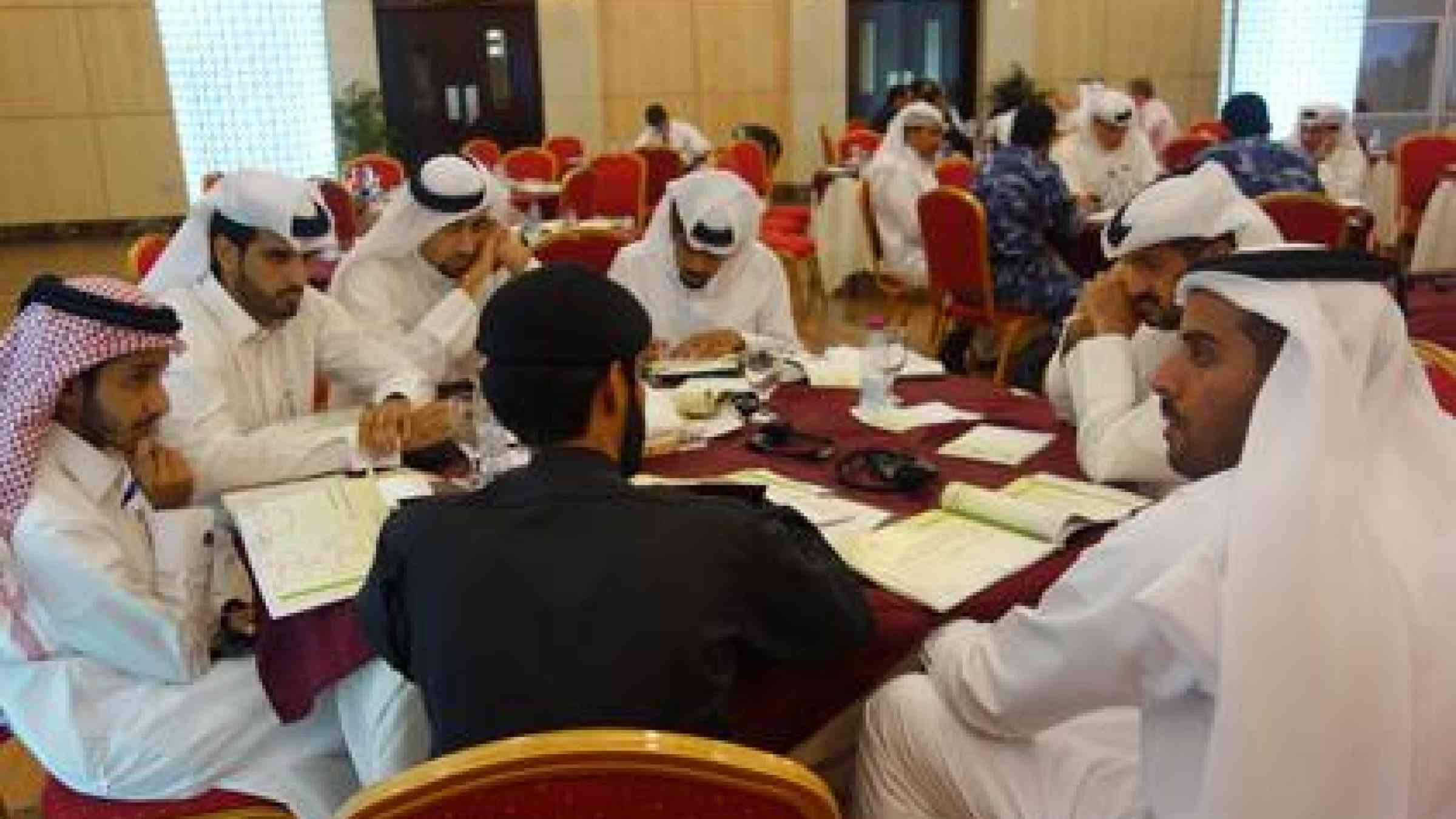
DOHA, 19 May 2014 – Qatar is taking major steps to develop a national plan for mainstreaming disaster risk reduction and recovery to address future disaster challenges, improve the coordination and determine key actions.
Sixty Qatari officials representing ministries, city governments and NGOs have just completed an intensive training in Doha under the umbrella of the International Recovery Platform (IRP) initiative with the support of the UN Office for Disaster Risk Reduction (UNISDR).
Qatar, with a population of over 1.6 million people, faces several environmental challenges such water scarcity, desertification, land degradation, and threats to marine and coastal ecosystems.
Participants learned about responsibilities for planning, managing and carrying out successful and resilient disaster reduction and recovery activities as the country embraces the principle of viewing rehabilitation and reconstruction as a valuable opportunity to “build back better”.
“The recovery task after a disaster strikes requires an efficient understanding of the needs, interests and abilities of the different actors,” said Mr. Fadi Jannan, Regional Programme Officer at UNISDR’s Cairo regional office.
“This training is a good source of knowledge on best recovery practices from around the world. Helping governments like Qatar to pre-plan for disaster recovery and to mainstream disaster risk reduction is key to a resilient future.”
This is the fourth training on disaster recovery planning in the Arab region since the IRP was launched following national events in Algeria and Lebanon and a regional workshop for the Cooperation Council for the Arab States of the Gulf (GCC).
“It is encouraging to witness how seriously Qatar views the concept of disaster risk reduction, for both current and future risks,” said Mr. Sanjaya Bhatia, the Head of UNISDR’s Global Education and Training Institute (GETI), in Incheon, Republic of Korea.
“Governments, like Qatar, engaged in disaster risk reduction and recovery planning are now aware of the opportunities presented after a disaster happens. There are many lessons learned in the global community that can help other governments improve their future risk reduction and recovery efforts.”
The IRP was conceived during the World Conference on Disaster Reduction held in Kobe, Japan, in 2005, as a key pillar for the implementation of the Hyogo Framework for Action (HFA) 2005-2015, which was adopted by 168 governments. IRP identifies challenges in post disaster recovery and shares lessons learned on resilient recovery.
The training on Disaster Recovery Planning in Doha was organized by the Permanent Emergency Committee and UNISDR at the General Directorate of Civil Defense.